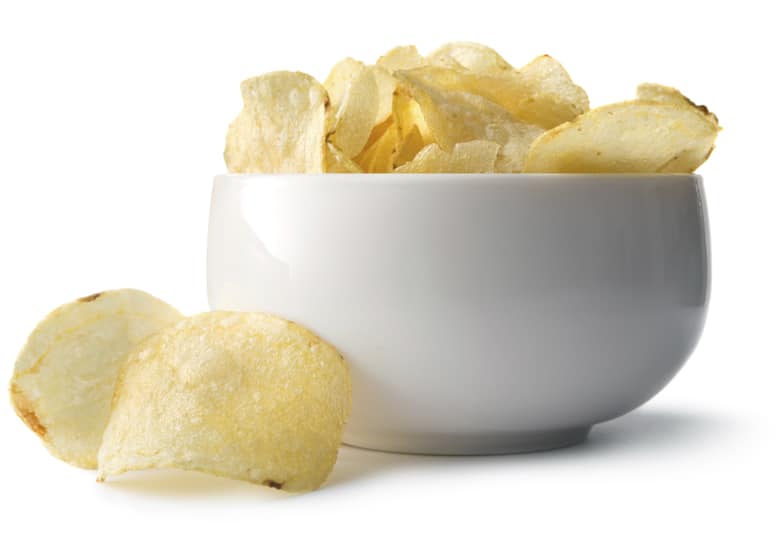Everyone has a technique for turning potatoes into chips. Now, scientists who have studied the microstructure of a potato after it’s fried, claim to have found the best method for creating the snack.
The team looked at how the porosity of a chip altered when slices are dunked in the fryer. They found the number and size of pores in the potato increased the longer it fried, allowing it to absorb more oil and taste even better.
“Microstructural properties play a key role to affect oil uptake and product quality during frying of foods,” reads the study publish in Journal of Food Science. “The objective of this study was to observe the complex microstructural changes and mass transfer mechanisms in potato disks during frying.”
Researchers from the University of Illinois Urbana-Champaign sliced russet potatoes into 45-millimeter diameter, 1.65-millimeter thick round pieces and then fried them in soybean oil, reported Popular Science.
Russet potatoes have been dubbed the best for making chips, because this type of potato has a higher starch content and higher density, which stops oil from penetrating too deeply, compared to the rest of the potato family, reported the BBC.
The process of frying potatoes goes back to the 1800s, when they were first fried in lard.
Today it’s common to use regular cooking oils, which have to be heated to at least 185 C.
As soon as the raw potato slice hits the scolding oil, any moisture on its surface instantly evaporates. Once the outside of the chip is dry, that familiar crispy crust starts to form.
During the study, the team deep-fried several batches of the sliced russets, each for a different length of time. Using a consistent 190 C oil, they fried some at 0, 20, 40, 60 or 80 seconds.
After all of the samples were finished, the team used an X-ray micro-computed tomography that allowed them to look at each chip’s makeup and create a 3D model.
This part of the study focused on how frying affects its porosity, the twistiness (tortuosity) of the paths connecting the pores and how much oil is absorbed during the few seconds the slices are submerged.
“Frying time was also observed to have an effect on tortuosity, which is an important microstructural fluid transport property,” researchers wrote in the study. “Tortuosity was measured by path length ratio method from 3D data sets obtained from image analysis. A linear inverse relationship was observed between porosity and tortuosity where tortuosity decreased with the increase of porosity.”
Researchers found that the longer the potato slices were in the oil, the more the number of and size of pores increased – which made them suck up more oil. These chips also showed to have less twisty pathways between pores, which is also linked to absorbing more oil.
For more information, visit the Daily Mail.











